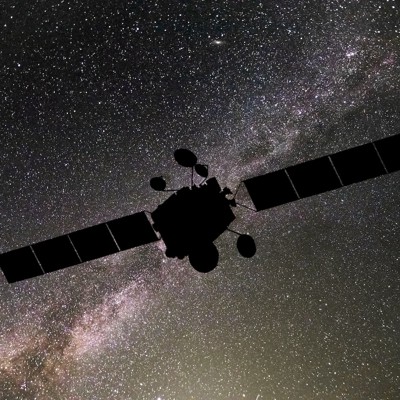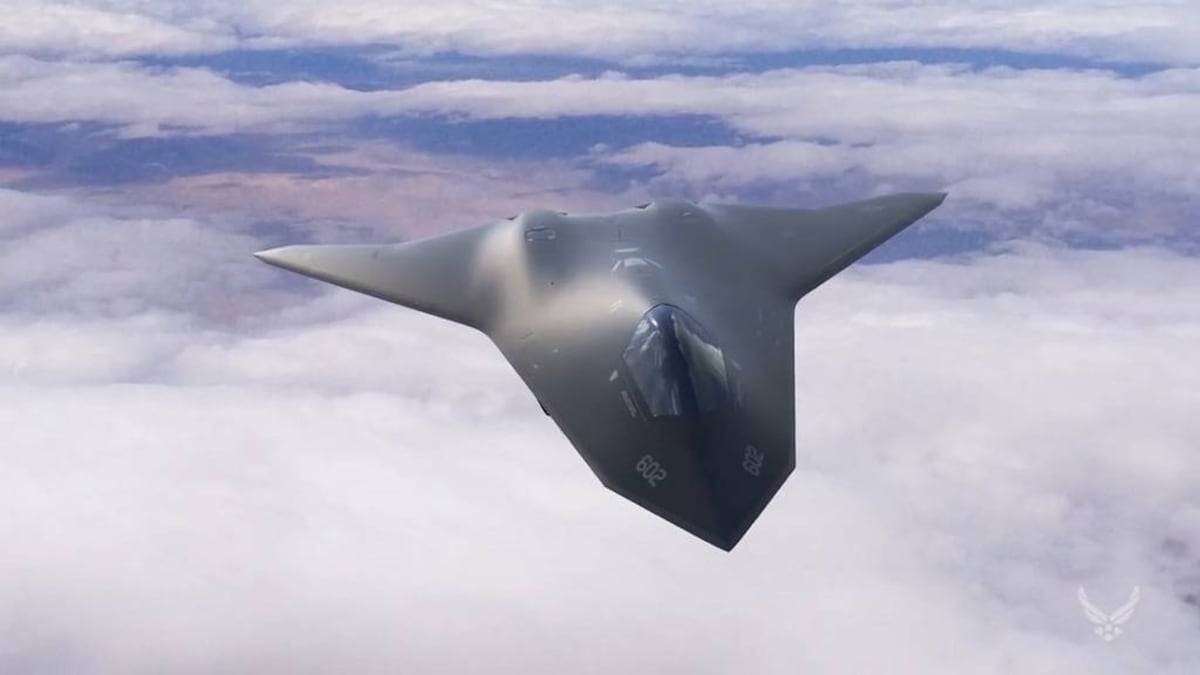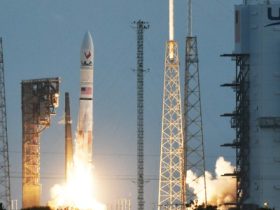Seeking to woo commercial satellite companies to its reserve effort, the Space Force is sifting through industry feedback on what would make a voluntary partnership most beneficial.
“We cannot wait for a national war to integrate these commercial capabilities. So we will put a level set capability on in peacetime that allows us to exercise, wargame, come up with the proper [tactics, techniques and procedures] and [concept of operations], and then through that contract, pre-price that capability through the spectrum of conflict,” Col. Richard Kniseley, senior materiel leader for the Space Force’s commercial space office, told reporters Monday at the annual Air, Space & Cyber conference hosted by the Air & Space Forces Association.
Last year, the Space Force announced plans for its commercial augmentation space reserve, or CASR, program—a voluntary contractual partnership designed to prevent military service disruptions like Starlink’s sudden disconnection of satellite communications services in Ukraine in 2022. Since then, Space Systems Command, which runs the CSO, has hosted industry days to get feedback on the CASR approach.
Ahead of its third and most recent CASR event last month, SSC released its plans for the reserve as part of a request for information, asking for feedback on the framework itself, incentives companies could enjoy—like an expedited cybersecurity accreditation process—and how it plans to evaluate companies’ capabilities and military mission needs, as well as what it expects from CASR members.
“This is a partnership, and it’s a voluntary partnership, so it’s important for us to get that industry feedback, to make sure that this is a construct that they want to be a part of,” Kniseley said.
The goal is to start awarding contracts later this year or next year at the latest, he said.
“One reason that I’m just moving, or at least trying to move, at light speed with regards to CASR, is I’ve got to get that capability out there. I’ve got to put these companies on contract to start working these exercises of wargaming and making sure they get on the [operations] floor with the military,” he said.
The Space Force also wants to determine exactly how much commercial capability the military will need in conflict. So it’s looking at satellite communications in the Indo-Pacific.
“The other thing that we are doing concurrently is kicking off our mission area analysis. We’re looking at commercial SATCOM as it supports the Indo-Pacific region, working with the space component out there as well as [Space Warfighting Analysis Center]. That’ll lay the foundation of how much we actually need to put on contract and kind of extrapolate what a potential war would look like, so that we have everything in place in the event that that happens,” Kniseley said.
Doing that will also help alleviate some industry concerns around threat sharing, he said.
“From a threat-sharing standpoint, having the ability for commercial [industry] to understand what’s going on in the [area of responsibility]…that will help influence their business decisions. Some of the consternation and concerns have also been about supply chain,” Kniseley said. “If you have that threat sharing at your fingertips. You will understand, from a CASR standpoint, when we may ask for an increased capability. That’s going to allow you, from a business standpoint, to possibly procure more long lead items, to be able to be more responsive to the customer.”
The Defense Department’s plan to have a squad of commercial space companies ready to help with military needs is part of a broader push to align with private industry and allies in space.
But there are still concerns that need to be evaluated, including threat sharing, financial protections, and the U.S. government potentially issuing denial of service orders to partnering companies.
One of the biggest concerns companies have with CASR is denial of service, which means the U.S. government could ask them to stop providing services to other, potentially adversarial, customers—a move that “puts them in a bad situation with their current contracts,” Kniseley said.
“From a government standpoint, we kind of come in overbearing, if you will,” he said, noting proposed contract language that stipulates the potential for increased use resulting in denial of service to other customers or potential adversaries.
Instead of blanket denial of service language, companies have suggested linking to the U.S. sanctions list.
“That makes sense, because it doesn’t put them in a bad situation because they’re adhering to law. It doesn’t make us look like we’re becoming overbearing as well,” Kniseley said.
The CSO is also working with the Pentagon’s space policy office on how to address financial protections for loss or damage to CASR satellites on orbit during war time. However, documents released with the RFI named insurance and indemnification protections as potential incentives for companies.
Read the full article here








Leave a Reply